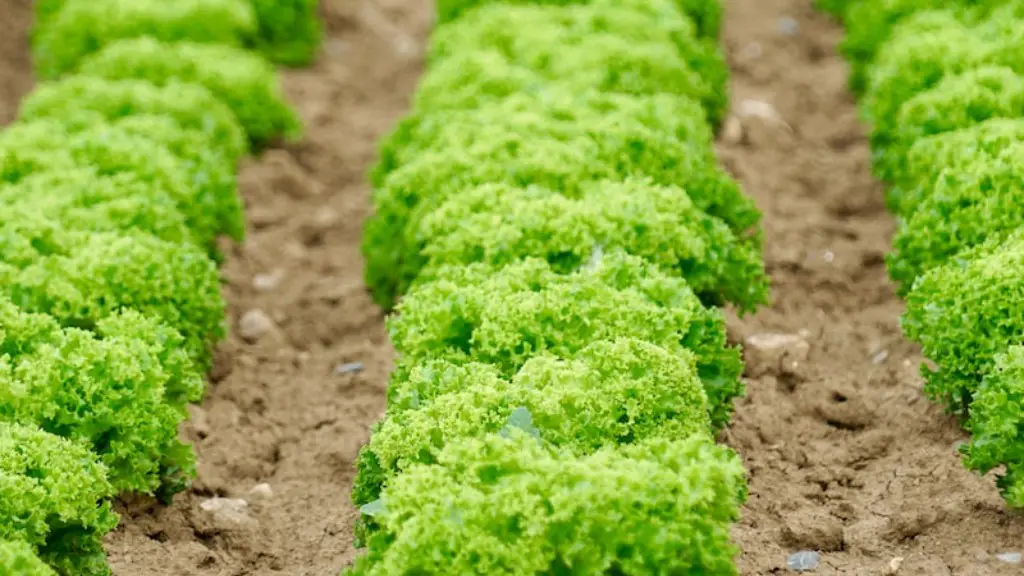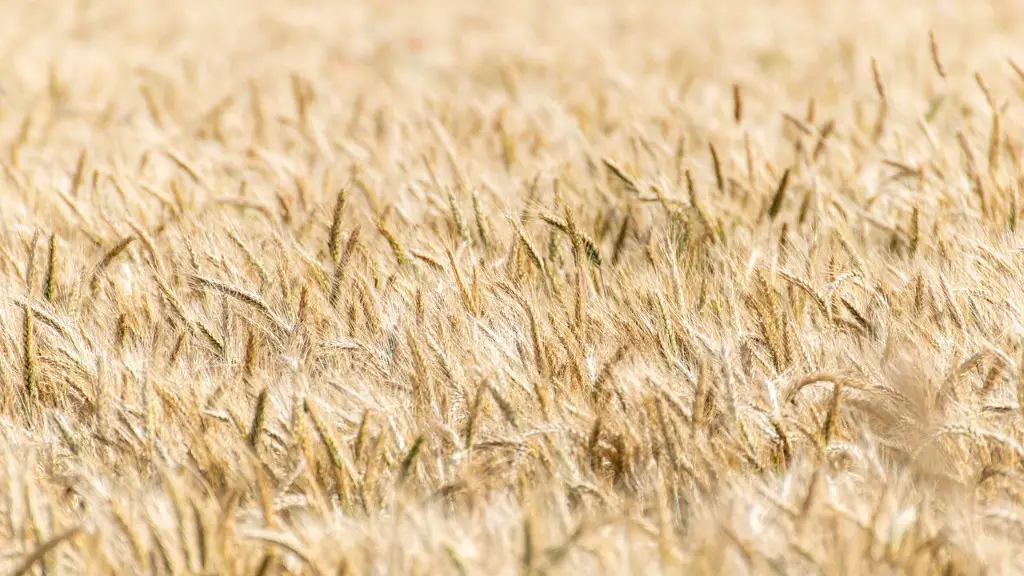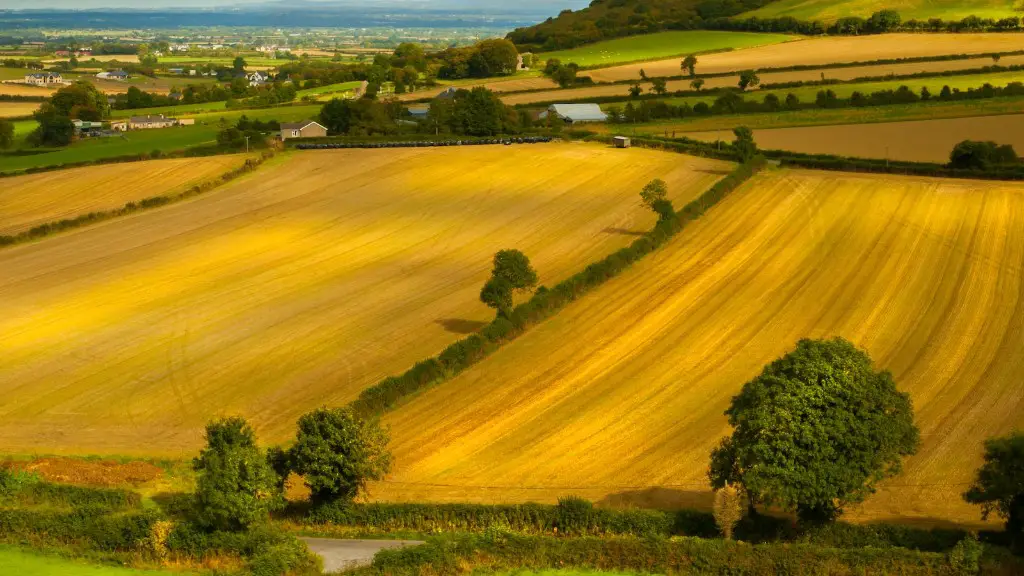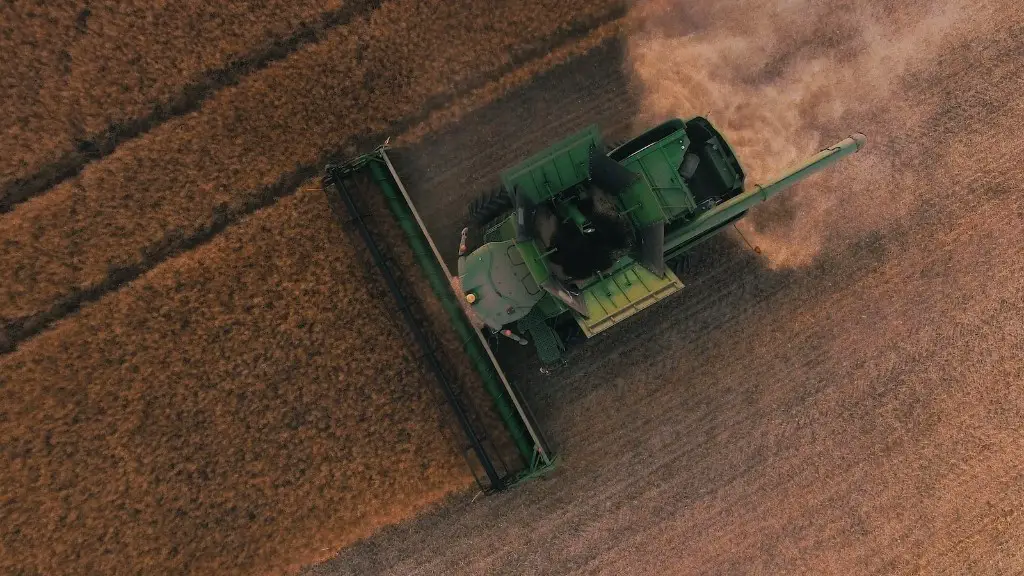Climate change is a major threat to agriculture in Nigeria. The country is highly dependent on rainfall for crops, and climate change is expected to bring more extreme and erratic weather patterns. This could lead to more droughts and flash flooding, which would devastate crops and lead to widespread food shortages. The Nigerian government is working to raise awareness of the issue and develop plans to mitigate the impact of climate change on agriculture, but the future of the sector is uncertain.
Nigeria lies within the intertropical zone where there is sufficient sunlight and rainfall to allow for year-round agricultural production. However, climate variability and change are adversely affecting agricultural production in Nigeria. For example, higher temperatures and changes in rainfall patterns are causing more frequent and intense droughts, which damage crops and decrease yields. In addition, flooding is becoming more common, which also damages crops and limits access to farmland. As a result, agricultural production in Nigeria is becoming increasingly unreliable, which is posing a serious threat to food security in the country.
What are the effects of climate on agriculture in Nigeria?
Climate change is already having a negative impact on agriculture in Nigeria and is expected to become even more pronounced in the coming years. Droughts, heavy precipitation, flooding of farmlands, rising temperatures, increasing aridity and soil acidity, changes in relative humidity, and increased evaporation are all expected to lead to reduced agricultural productivity and disruptions to food systems. These impacts will disproportionately affect the poorest and most vulnerable Nigerians, who are often the most reliant on agriculture for their livelihoods. It is therefore imperative that the Nigerian government takes steps to mitigate and adapt to the impacts of climate change in order to protect the country’s food security and its people.
Climate change will have a direct impact on agricultural systems through changes in rainfall and temperatures. These changes could alter ago-climatic conditions, resulting in changes to growing seasons, planting and harvesting calendars, and water availability. Additionally, pest, weed, and disease populations could be impacted by climate change.
How does climate affect agriculture
Climate change can have a significant impact on food availability, access, and quality. For example, rising temperatures, changes in precipitation patterns, and more extreme weather events can all lead to reduced agricultural productivity. This, in turn, can make it more difficult for people to access food, and the food that is available may be of lower quality.
The climate in Nigeria is becoming increasingly variable, which is causing more intense and untimely rainfall. This is adding to land degradation, flash floods, landslides, and gully erosion, which have all worsened across the country. Nigeria is one of the ten most vulnerable countries to climate change impacts, and this trend is only making the situation worse.
How does climate affect agriculture in Africa?
The volatility of food prices is a major concern for African countries. Higher volatility in the yields of major African food crops is likely to result in higher price volatility for both farmers and consumers. African countries are already working to counteract growing volatility, but better and more localized planning and financial mobilization will be key.
Climate change is already having an impact on the distribution of crops in Nigeria. Crops that need rainfall to grow are more abundant in the south, while those that don’t need rainfall grow more in the north. This is causing problems for farmers who are trying to meet the demand for food. Excess rain and drought are making it difficult to produce enough food to meet the needs of the population.
What are the most significant agricultural problems caused by climate change?
The negative impacts of global warming are many and varied. Perhaps one of the most significant is the impact on crop yields. As temperatures rise, the growth period for many crops is reduced, leading to lower yields. Additionally, the sugar content of fruits may be reduced, and storage stability can be poor. In addition, increases in weeds, blights, and harmful insects can decimate agricultural crops. Finally, rising temperatures can lead to reduced land availability for agriculture. All of these impacts can have serious implications for food security.
The main environmental factors affecting agricultural production in Nigeria can be grouped into climatic, soil or edaphic factors and biotic factors.
Climate is the average weather condition. Its main factors are insulation, temperature, pressure, wind and rainfall. Each of these factors has its own influence on agriculture.
Soil or edaphic factors include the physical and chemical properties of the soil. The main physical properties are texture, structure, porosity, water holding capacity and temperature. The main chemical properties are pH, fertility and salinity.
Biotic factors include all the living organisms in the environment. They can be classified into plants, animals and microorganisms. Plants provide the main source of food, fuel and fibre for humans. Animals provide food, wool, leather and other products. Microorganisms are important in the decomposition of organic matter and the recycling of nutrients.
How climate change affect economic growth in Nigeria
Loss of income from agriculture and livestock farming due to climate change is a major issue at the national and individual levels. This is a huge problem for rural dwellers who are full-time farmers and for urban dwellers who are part-time farmers. Farmlands are being destroyed and incomes are being depleted. This is a major crisis that needs to be addressed.
Urbanization, deforestation, desertification, overpopulation and all kinds of pollution are some of the resultant effects of man’s interaction with his environment. These changes occur as the people attempt to acquire their seemingly endless desire for food, shelter, recreation and infrastructural facilities. As the world’s population continues to grow, the demand for these resources will only continue to increase, putting even more strain on our planet. It’s important that we find ways to sustainably manage these resources, or we will continue to see the negative effects of our actions on the environment.
What is the climate situation in Nigeria?
Nigeria is characterized by three distinct climate zones: a tropical monsoon climate in the south, a tropical savannah climate for most of the central regions, and a Sahelian hot and semi-arid climate in the north of the country. This leads to a gradient of declining precipitation amounts from south to north. Nigeria experiences high temperatures and humidity throughout the year, with average temperatures ranging from 25°C to 27°C. The rainy season extends from April to October in the south, and from June to September in the north.
African farmers face a number of unique challenges that other farmers around the world do not. One of the biggest challenges is the reliance on rain-fed agriculture. This means that farmers are at the mercy of the weather and can have a bad harvest if the rains do not come on time or are not plentiful enough. Another challenge is the prevalence of drought and other natural disasters. These can destroy crops and leave farmers with nothing to sell or harvest. Finally, African farmers often do not have access to the same resources and infrastructure as their developed counterparts. This can make it difficult to get access to markets, finance, and new technology.
How does climate change affect agricultural land
Climate change will bring both opportunities and challenges for food production. On the one hand, temperature increases will add more frost-free and growing degree days that could improve yields, and enable new cropping options in some regions. On the other hand, more frequent and intense storms, floods, and drought are expected annually, adding uncertainty to food production. growers will need to adapt their management practices to the new conditions, and develop new strategies to mitigate the risks posed by climate change.
There are multiple factors that should be addressed if Nigeria would be liberated from food importation. Poor farming conditions, lack of technical know-how, poor seedlings, insecurity, and absence of Good Agricultural Practices (GAP) are all major issues that need to be addressed. Improving farming conditions and providing farmers with the necessary technical know-how and good seedlings will go a long way in improving food production in Nigeria. In addition, increasing security in rural areas will also help to encourage more farming and reduce the risk of theft and violence. Finally, promoting Good Agricultural Practices (GAP) will help to improve the quality of produce and reduce wastage.
What are the problems of agriculture in Nigeria and their solutions?
Agriculture is the mainstay of the Nigerian economy, contributing about 40% to the country’s Gross Domestic Product (GDP) and employing about 60% of the workforce.
However, the sector is beset with a number of challenges, which if not addressed, could hamper the growth and development of the sector. Some of the major problems facing agriculture in Nigeria include:
1. Poor infrastructure: This is one of the major problems facing agriculture in Nigeria. The lack of good roads, storage facilities, and processing plants makes it difficult for farmers to get their produce to market. This results in post-harvest losses, as well as reduced incomes for farmers.
2. Dormant research facilities: There is a need for improved research on new techniques and technologies that can be used to improve Agricultural productivity. However, the research facilities available are not being utilised to their full potential due to a lack of funding.
3. Education and modernisation: There is a need to modernise the Agricultural sector and make it more attractive to the younger generation. This can be done by improving the quality of education and training available to farmers, as well as introducing modern technologies.
4.
Nigerian agriculture is primarily rain-fed, which is characterized by low productivity, low technology, and high labor intensity. This low agricultural productivity has been attributed to the low use of fertilizer, the loss of soil fertility, and traditional, low technology, rain-fed farming systems.
Nigeria’s agricultural sector is in need of reform in order to improve productivity and competitiveness. The government has initiated a number of programs and policies to address these issues, but more needs to be done. The private sector also needs to play a role in promoting and investing in innovations and technologies that can help boost agricultural productivity.
Conclusion
Nigeria’s climate is tropical and generally hot and humid. The country’s agricultural productivity is largely determined by the amount of rainfall it receives each year. erratic and unreliable rains are a major constraint on agricultural production in Nigeria and can lead to widespread food shortages.
Climate change and agriculture are inextricably linked. The agriculture sector is both a major contributor to global greenhouse gas emissions, and one of the most vulnerable to the impacts of climate change. In Nigeria, climate change is already affecting agriculture, with longer and more unpredictable dry seasons and more frequent and intense floods. These trends are expected to continue, and will have major impacts on Nigeria’s food security and economy. To adapt, the Nigerian government is working with farmers and other stakeholders to improve crop resilience, reduce greenhouse gas emissions, and build more climate-resilient infrastructure.





